A puzzler from Willis Ernest Johnson, Mathematical Geography, 1907:
“A man was forty rods due east of a bear, his gun would carry only thirty rods, yet with no change of position he shot and killed the bear. Where on earth were they?”
A puzzler from Willis Ernest Johnson, Mathematical Geography, 1907:
“A man was forty rods due east of a bear, his gun would carry only thirty rods, yet with no change of position he shot and killed the bear. Where on earth were they?”
ultracrepidarian
adj. one who gives opinions and advice on topics beyond his knowledge
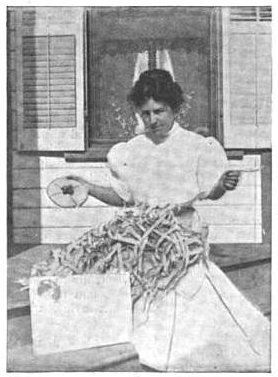
In 1906, while serving in the Navy, Albert Moodie of Austin, Texas, wrote a letter to a shipmate. That wouldn’t normally be noteworthy — but Moodie wrote this letter on the regulation tape that battleships use for receiving wireless messages.
“It took me some two weeks to complete the task,” he reported, “as there is a continuous letter from the beginning to the end of the tape — a distance of over a mile.”
Moodie called it “the longest letter in the world.” His friend received it — and answered it.
Justice Arthur Gilbert of the California Court of Appeal felt that legal motions might be more interesting if they were written in the styles of famous authors. He proposed these motions for continuance:
Ernest Hemingway:
It was busy and there was commotion. I looked out the window where the wind touched the top of the trees and far below, the street, white from the sunlight, and the cars inching forward, but I could feel up here that it would not be good, but there was nothing one could do. Pilar, my secretary, looked at me and her eyes told me that this was as bad as when the bulls are running toward you and there is nowhere to climb and you know you will be trampled, but you know that until they do you can live a good life, a short, happy life. And when I asked her for the file and she said, “What file, Ingles?” I knew that the bulls were loose and there was nowhere to go; there was no yesterday, no tomorrow, but that was then and now is here, Your Honor. There was a time when it was good, but now it is a time when it is bad and you can make it good again, and if you can’t, it’s a rotten shame.
T.S. Eliot:
Thirty days to answer.
It’s the cruelest month.
Dead, dying decay, an apt description
For my brain, withered, not resplendent now,
A supplicant, having been etherized upon a table
During the time to answer.
I ask for relief,
Not with a bang, but a whimper.
James Joyce:
HelpmeohGod Time is creptupandI saidyesohheyesyesyesyesI need relief nowfromignominious default default fault-d de fault is mine ohhelptheteatiscaughtintheproceduralwringer. Relief.
William Faulkner:
Benji had taken the file and went along the fence with it and lost it through the spaces in the fence where the flowers were curling. That’s what they said. I started to cry. Caddy, who smelled like trees, and Quentin, who just smelled, came to find the file, but I didn’t holler ’til mother shouted at Dilsey for bringing me cheap store cake. Dilsey took me up to bed. Quentin told Caddy he had to answer. He had to find the file. Caddy did not know that Benji had taken the file, and Benji could not know that he had taken the file, because this motion is written from Benji’s point of view, and his IQ is 17.
Contrived names of American hair-cutting establishments, from a 1979 survey by Ross Eckler:
“Cutting Corners (Boston, Providence) sounds like a place to avoid.”
What’s remarkable about these numbers?
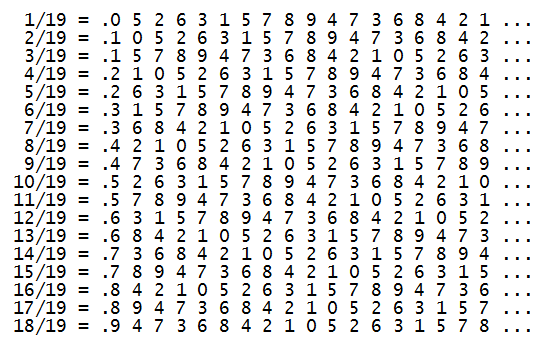
They form a perfect magic square. Each row, column, and diagonal adds to 81.
W.S. Andrews wrote, “Considering its constructive origin and interesting features, this square, notwithstanding its simplicity, may be fairly said to present one of the most remarkable illustrations of the intrinsic harmony of numbers.”
Epitaph of the eminent barrister Sir John Strange:
Here lies an honest lawyer,–
that is Strange.
From Epitaphiana: or, The Curiosities of Churchyard Literature, 1873.
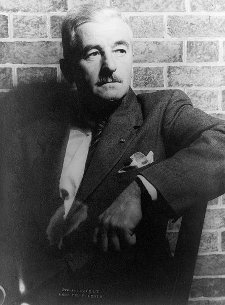
In December 1924, a postal inspector from Corinth, Miss., leveled a series of charges against the postmaster at the University of Mississippi. “You mistreat mail of all classes,” he wrote, “including registered mail; … you have thrown mail with return postage guaranteed and all other classes into the garbage can by the side entrance,” and “some patrons have gone to this garbage can to get their magazines.”
The slothful postmaster was William Faulkner. He had accepted the position in 1921 while trying to establish himself as a writer, but he spent most of his time in the back of the office, as far as possible from the service windows, in what he called the “reading room.” When he wasn’t reading or writing there he was playing bridge with friends; he would rise grumpily only when a patron rapped on the glass with a coin.
It was a brief career. Shortly after the inspector’s complaint, Faulkner wrote to the postmaster general: “As long as I live under the capitalistic system, I expect to have my life influenced by the demands of moneyed people. But I will be damned if I propose to be at the beck and call of every itinerant scoundrel who has two cents to invest in a postage stamp. This, sir, is my resignation.”
Ding Dong, Texas, is in Bell County.
Houston, Missouri, is in Texas County.
Java, Alabama, is in Coffee County.
Like Nabokov, Lord Dunsany was fond of composing chess problems. This example was published in Hubert Phillips’ Week-end Problems Book of 1932:
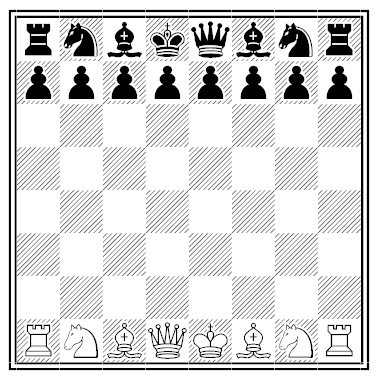
Two eccentric gentlemen abandoned this position at a chess club — White had announced mate in four. What was the mate?
The key is to notice that Black’s king and queen have changed positions. This is not possible if the black pawns are on their home squares. And this means that we’ve been viewing the position upside down:
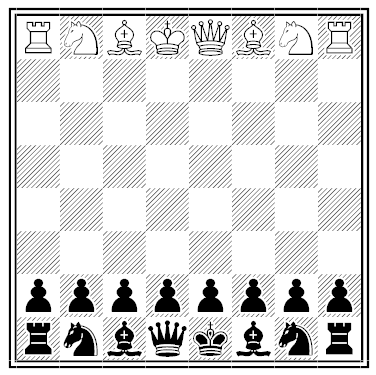
Now it’s clear that Black is hemmed in by his own pawns — White can mate him in four moves with the b8 knight, e.g. by 1. Nc6 Nf3 2. Nb4 (threatening Nd3#) Ne5 3. Qxe5 (any) 4. Nd3#.
Dunsany drew a game against Capablanca in a simultaneous exhibition in London in April 1929. He later wrote:
One art they say is of no use;
The mellow evenings spent at chess,
The thrill, the triumph, and the truce
To every care, are valueless.
And yet, if all whose hopes were set
On harming man played chess instead,
We should have cities standing yet
Which now are dust upon the dead.